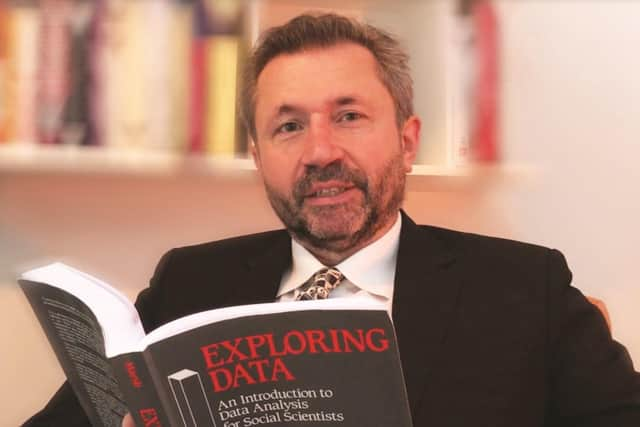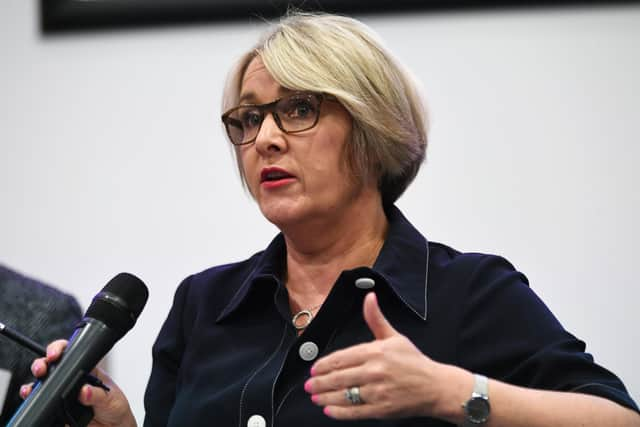University of Strathclyde spurs fintech forwards with MSc


It’s three years since the University of Strathclyde kick-started an academic fintech revolution by launching the UK’s first MSc in the subject.
Much has changed since then, as the fintech community has grown enormously, and spawned scores of new businesses, transforming the way we engage with financial services.
One thing hasn’t changed: Strathclyde is still at the pioneering frontline of fintech education, research and innovation.


At the start of the 2020-21 academic year, the university’s Centre for Doctoral Training in Data Science for Studying Financial Technology is expected to have ten bright young talents taking a deep dive into the heart of fintech – the largest number of doctoral researchers in the subject anywhere in the UK and possibly the world.
Daniel Broby, director of the university’s Centre for Financial Regulation and Innovation, says it is a pivotal moment for the university.
“We are ready to move from push to pull. For several years, we have led the way in fintech education in the UK and have been telling the world about what we are doing.


“Now we want to get to the position where we don’t have to push out our messages so much, but instead, we pull people in, as Strathclyde becomes the go-to place for fintech, a centre of global excellence.”
To achieve this ambition, Broby observes, requires the highest-quality academic research.
“If you are producing more future academics, you are really pushing the agenda,” he explains.
“When people spend several years taking a deep dive into a very specific topic and produce peer-reviewed papers, they are real leaders in that field.
“That’s where we are with fintech. Having more fintech researchers than any other UK university is a real achievement – but we are right up there with the global leaders.”
Topics being examined by Strathclyde’s doctoral fintech researchers include open banking and how the banking sector has been impacted by fintech and its migration online – as well as textual analysis of fintech and the ontology of fintech itself.
However, Broby stresses, it’s not just about the numbers, or the speed of growth.
“The development of fintech activity at Strathclyde has not been linear; it has increased in depth and breadth as well as pace,” he says. “It has been ‘invasive’ and reached into many other departments.”
Broby illustrates this collaboration with reference to privacy issues around fintech: “Privacy, ethics and trust are really important; it’s crucial that people have confidence in online financial institutions. We have to get that element right. “Strathclyde Law School is collaborating with us in that area, which is a great example of multi-disciplinary working.”
Eleanor Shaw, Associate Principal and Professor of Entrepreneurship, says that the collaboration between the university’s fintech cluster and other associated disciplines is absolutely vital to its future growth and success.
One area of close co-operation is with regtech [the management of regulatory processes within the financial industry through technology].
“We have a very active regtech forum which is making very good progress, while fintech is also working well with health tech, industrial informatics and our 5G cluster,” says Shaw.
“With our 5G cluster, there are real synergies with fintech and also with the ‘fintech-for-good’ agenda. Working together there are definite opportunities for innovation in the provision of reasonably priced, people-centred broadband – all values Strathclyde embraces.
“If fintech is going to realise its social benefits, people need access to faster and cheaper broadband, and 5G technology is clearly crucial to that.”Shaw says that the university is committed to delivering social as well as economic benefits through fintech. “One direction we want Strathclyde to lead on is ‘fintech for good’. I think fintech can make an important economic contribution, but also close the gaps in financial literacy and promote financial inclusion. I think that’s a really strong agenda.”
The associate principal is making her own personal contribution as a member of the research steering committee for the Global Open Finance Centre of Excellence (GOFCoE).
Strathclyde University was part of the consortium that delivered the centre to Scotland and now it is identifying how to deliver on its mission to “unlock financial transactional data to improve citizens’ lives” through research, innovation and talent development.
GOFCoE is a huge win for Scotland, says Shaw – and the timing is ideal, as fintech makes the most of the shifts in financial behaviour as a result of the pandemic.
“Covid-19 has had an enormous impact and I think everyone has realised there is a better way to live and do business,” she says.
“Fintech is well-positioned to make a contribution. It is one of the sectors able to identify opportunities in an otherwise quite challenging business environment, and it has that ability to deliver both economic benefits and social good. The University of Strathclyde will be at the forefront of that.”
‘Digital literacy AT ALL LEVELS will really help’
Associate Principal of Strathclyde University and Professor of Entrepreneurship Eleanor Shaw, pictured, also sees ways in which Strathclyde’s fintech strength can feed into significant UK policy agendas, including levelling up - spreading prosperity around the UK and creating powerhouses to deliver economic and social benefits.
“Fintech has a big part to play in that Glasgow-Edinburgh corridor, to create a powerhouse and help persuade talent to remain in Scotland and not go to London,” she says.
“It also fits in with the new ‘Office for Talent’ idea, which aims to make it easier for leading global scientists, researchers and innovators to come to the UK.
“We have always put skills and talent at the heart of our approach to fintech and this also chimes with the work Dr Kevin Page [a professorin the Hunter Centre For Entrepreneurship] has done with our Institute for Digital Transformation.”
Shaw continues: “It’s not just about providing new talent, it’s upskilling and re-skilling people who are in the sector already, improving the digital skills of the existing workforce.
“Digital literacy at all levels will really help fintech to thrive.”
DATA LOCH: ‘Another great addition to our toolkit’
Ambitious plans for a “data loch”, which will allow high-quality fintech research, are driving ahead at the University of Strathclyde, using its ARCHIE-WeSt regional supercomputer centre.
“We have created space for a data loch and have started migrating some data over to it,” says director of the university’s Centre for Financial Regulation and Innovation Daniel Broby, pictured above.
“The biggest impediment to financial academic research is the data. If there is a pool of data that can allow you to test fintech concepts, that will help make Strathclyde a go-to place for innovation related to academic research into fintech.
“The ‘blind’ data gets around any privacy concerns about personalised financial information being used, and also allows researchers access to very large amounts of information in a controlled environment that could allow them to generate significant insights in fintech and related areas.
“It’s not just about academics; we can help companies test ideas and concepts too.”
Broby goes on to explain: “There is the Financial Conduct Authority sandbox, but you really need to be in London to utilise that, and so Scottish companies are under-represented.
“We can use our data loch to promote innovation and entrepreneurship in Scotland, and it’s another great addition to our toolkit to promote a world-class fintech centre.”
Find out more at Strathclyde University Business School.